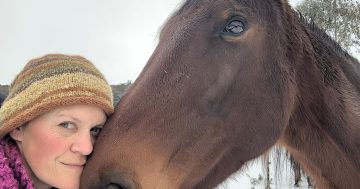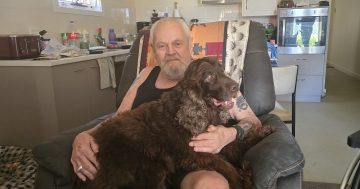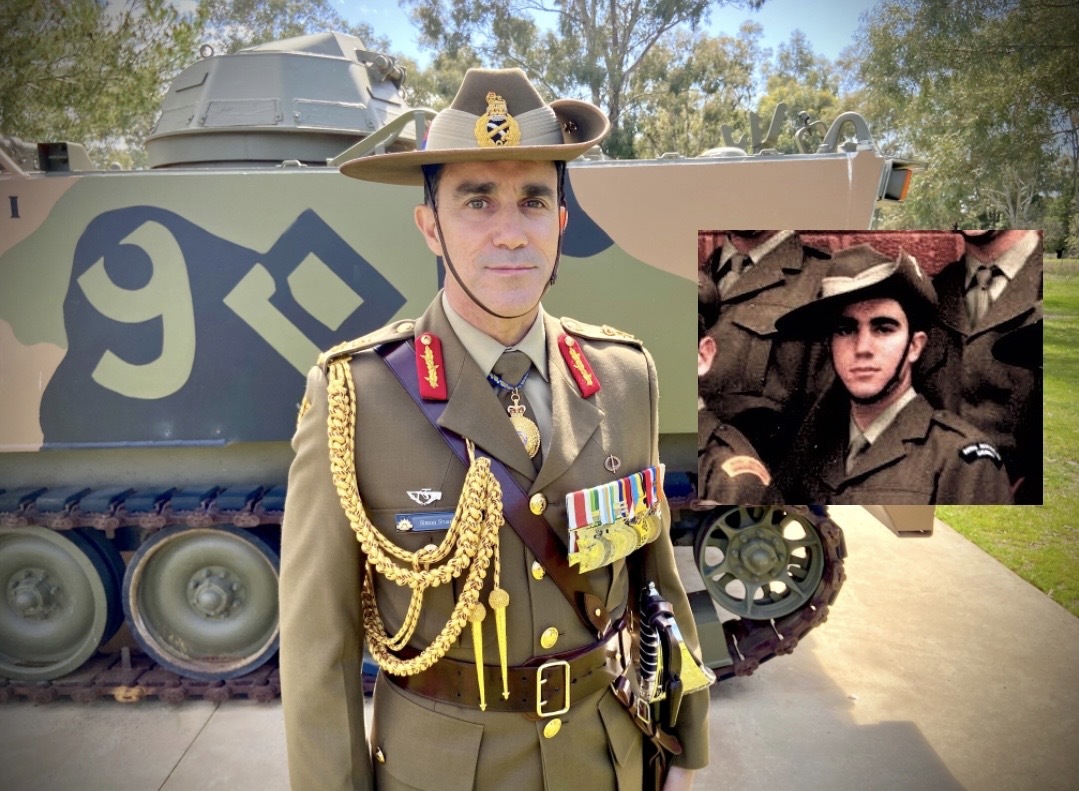
LTGEN Simon Stuart at Kapooka and (inset) his graduation photo from 1987. Photos: Chris Roe and Supplied.
It’s a glorious spring morning on the parade ground at Kapooka as Lieutenant General Simon Stuart inspects the graduating platoon.
The recently appointed Chief of Army walks solemnly along the lines of 38 newly minted soldiers of 22 Platoon Charlie Company, who stand ramrod straight, uniforms crisp and brass buttons and badges glinting in the sun.
For LTGEN Stuart, today is his first return to Kapooka since he assumed command of the Australian Army in July.
“Physically, it (Kapooka) really hasn’t changed that much,” he says, speaking at the conclusion of the parade.
“And certainly the heart of this place is to develop people to be the best they can be in the service of their nation.
“So there’s great continuity.”
LTGEN Stuart is the first Chief of Army in more than a decade to have risen through the ranks after marching out here as a soldier 35 years ago.
“It does have a special significance for me to be here today because I was in 22 Platoon in 1987,” he reflects.
“And the great point to be drawn from that is that the army really is a magnificent organisation and it’s one where you can start as a recruit and end up as Chief of Army.”
But he says his elevation to the position has been a humbling experience.
“It’s a tremendous privilege but I actually feel very small and very humble and you work every day to make sure that you don’t let anybody down,” he says.
“These young Australians today who decided to step up and serve their nation, I couldn’t be prouder of them.”
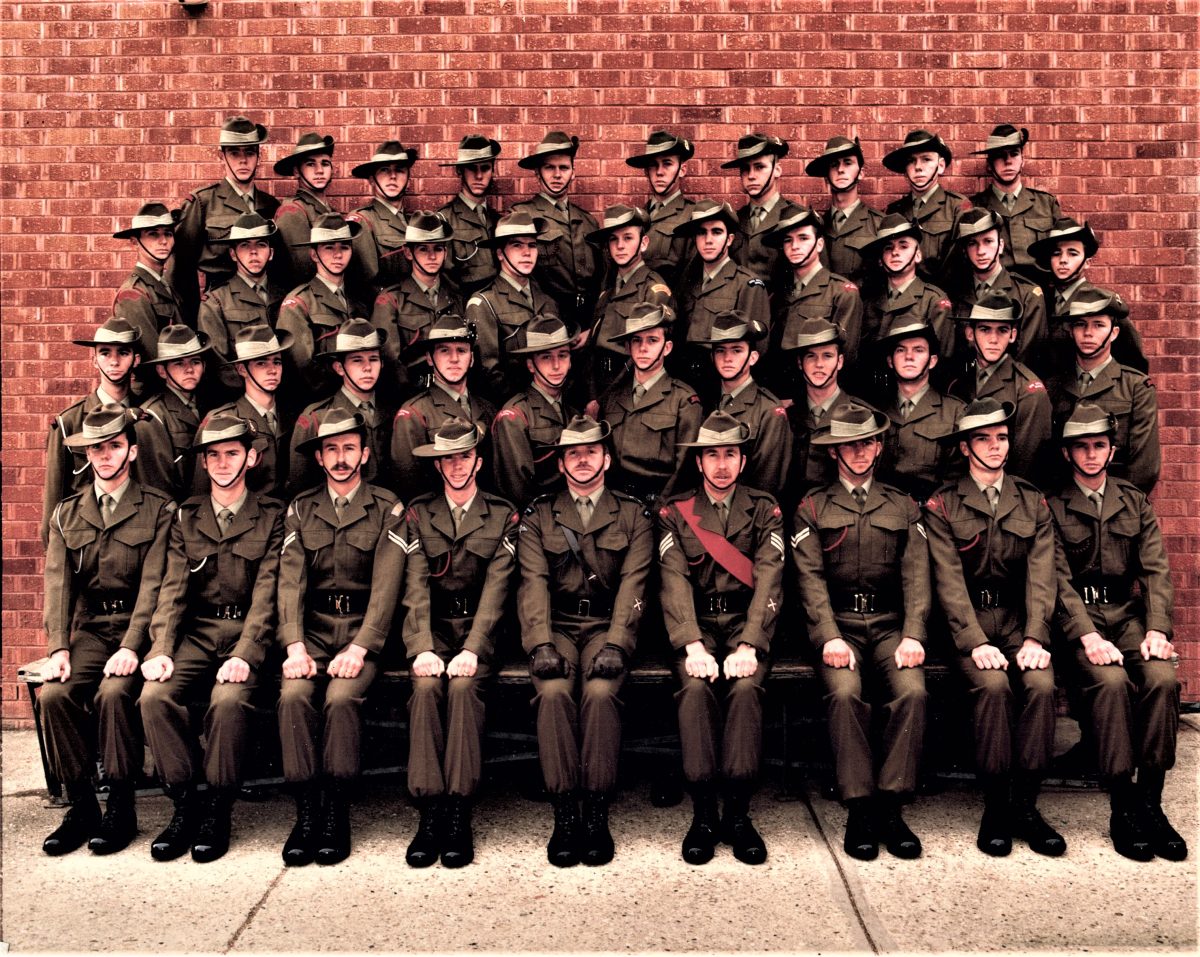
LTGEN Stuart’s 22 Platoon, Charlie Company, Kapooka, 1987 (PTE Stuart second row from the back, fifth from the right). Photo: Supplied.
During his address, LTGEN Stuart quoted US President Franklin Roosevelt, reminding the young soldiers of their obligations.
“I just think it really applies to our job as soldiers and it really is the standard that we set: to do what you can, with what you’ve got, with the people that you’re with, with your team, wherever you find yourself,” he reiterates.
“And I think that that can help in times of adversity, and times of challenge and difficulty. That’s the standard. That’s all that’s required. Do your best.”
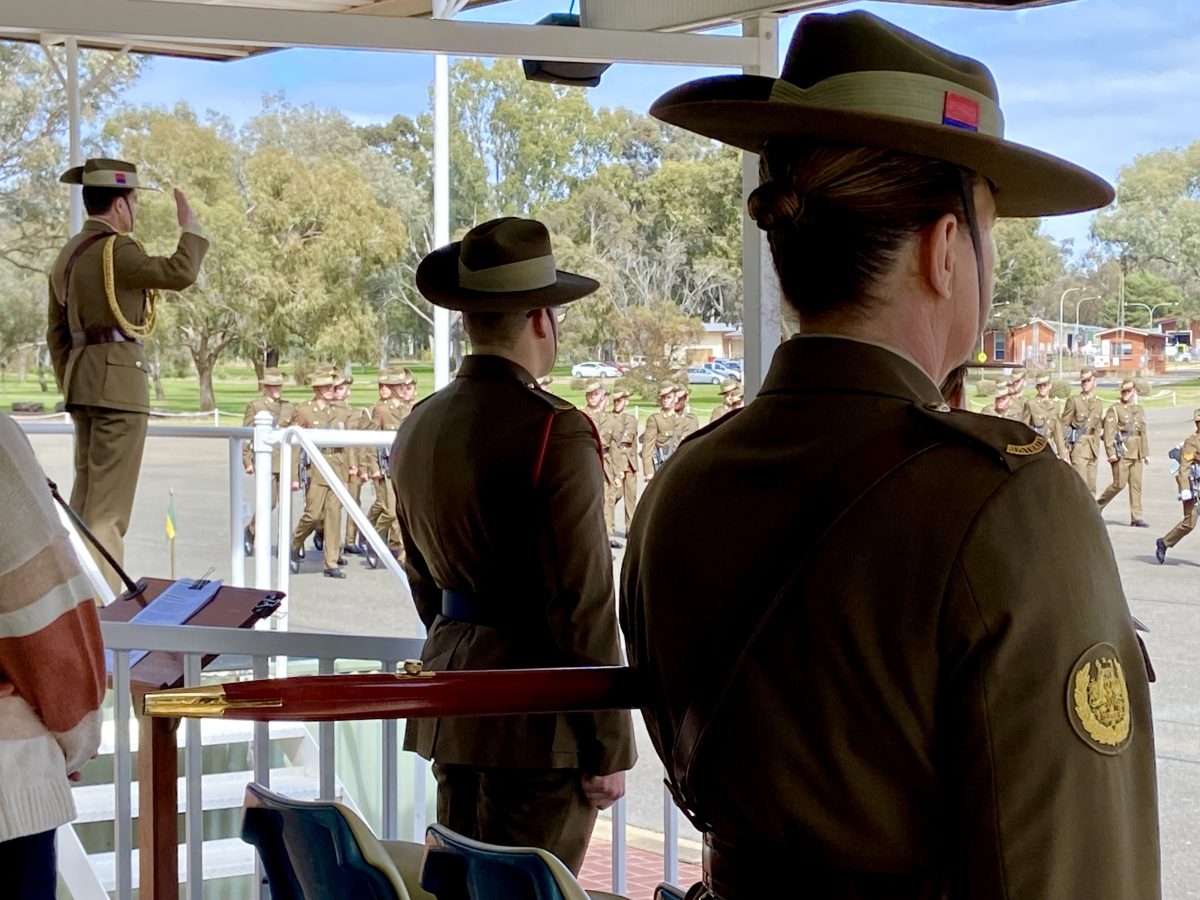
LTGEN Stuart reviews the troops at Kapooka for the first time as Chief of Army. Photo: Chris Roe.
In March, then-Prime Minister Scott Morrison announced plans to expand the military by almost a third.
The push to grow to about 80,000 uniformed troops by 2040 will be Australia’s biggest peacetime increase and LTGEN Stuart acknowledges the challenges.
“The ADF is growing by around eighteen and a half thousand and that’ll be done in a steady, manageable way,” he says.
“Not only are we (army) growing, but we’re transforming the capabilities that we have to make sure that we can meet the challenges in the 21st century.”
He says their approach to recruitment has evolved to make army life more appealing.
“We’re in a competitive market and we’re doing many, many things to improve that value proposition.
“Our society has changed, our army has changed, but the challenges of being a soldier, and particularly the challenges of operational service, haven’t changed.
“They have an impact and we’re doing everything we can to make sure that we look after our people.”
With the Royal Commission into Defence and Veteran Suicide underway, LTGEN Stuart says it is also a priority to see that that support extends beyond active duty.
“We’re working every day to make sure we can improve that support,” he says.
“The royal commission is a great opportunity for us to learn to improve and to work together as a society.”
LTGEN Stuart speaks positively about the future for today’s recruits as they embark on their careers and says he’s committed to preparing the army to meet the challenges of a changing 21st-century world.
“The army is a great place to come if you want a future-focused job with great people, with great purpose and great technology.”







